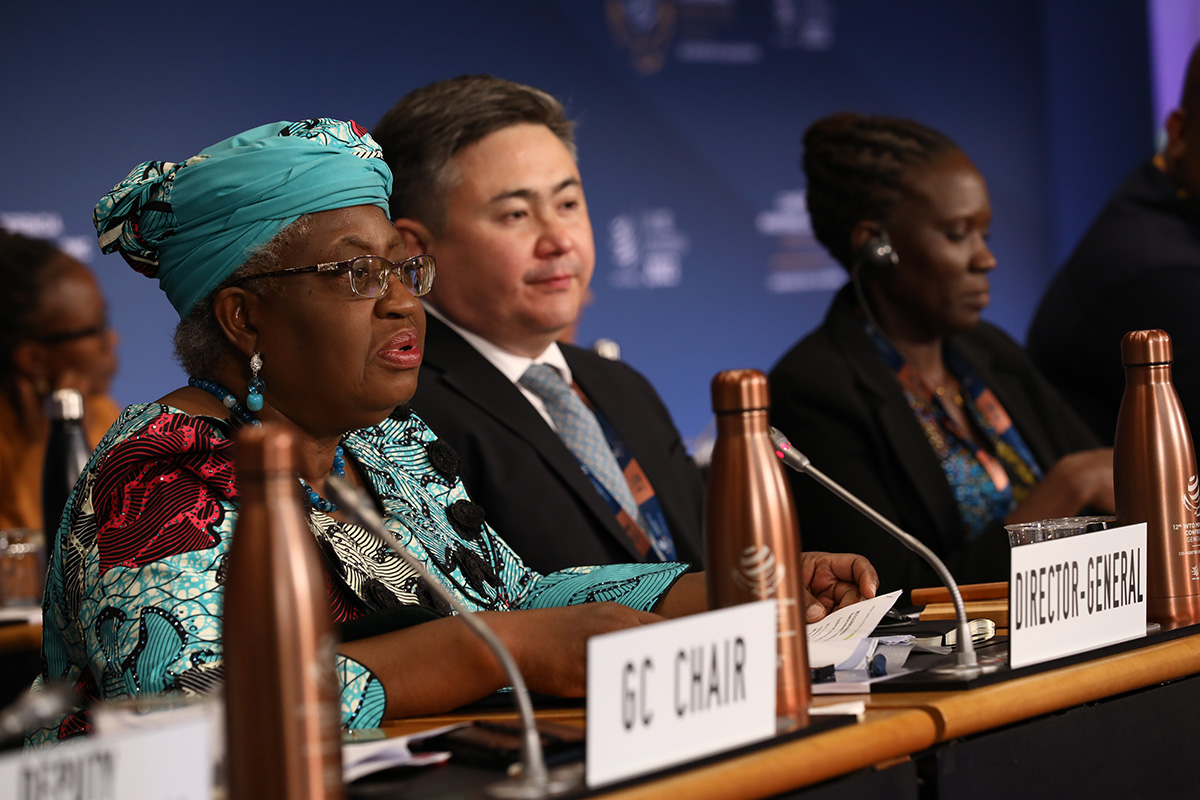WTO Ministerial Conference delivers package of agreements amid negotiation uncertainty
 WTO Trade ministers at the 12th Ministerial Conference, which took place in Geneva, found agreement on the response to the pandemic, the food security crisis triggered by Russian invasion of Ukraine, as well the exemptions for purchases of goods by the World Food Program, the Trade Aspects of Intellectual Property Rights (TRIPS) and fisheries subsidies.
WTO Trade ministers at the 12th Ministerial Conference, which took place in Geneva, found agreement on the response to the pandemic, the food security crisis triggered by Russian invasion of Ukraine, as well the exemptions for purchases of goods by the World Food Program, the Trade Aspects of Intellectual Property Rights (TRIPS) and fisheries subsidies.
The World Trade Organization (WTO) 12th ministerial conference in Geneva, began on 12 June and concluded on Friday, has brought together Trade ministers of the 164-member organization for the first time after almost five years due to the restrictions of the covid pandemic.
The members reunited for multilateral negotiations on various topics, after postponing the end of the conference by one day, managed in extremis to find accordance on a package of agreements which include decisions that WTO Director-General Ngozi Okonjo-Iweala defined as “unprecedented” and that “will make a difference to the lives of people around the world”, she stated.
The outcomes of conference, which seemed dominated by uncertainty until the very last, range from the response to the pandemic, the food security crisis triggered by Russian invasion of Ukraine, as well the exemptions for purchases of goods by the World Food Program, the Trade Aspects of Intellectual Property Rights (TRIPS), and fisheries subsidies.
On TRIPS, WTO ministerial found and agreement that left unhappy both by pharmaceutical firms and civil society group, as they decided to waive parts of the agreement. Though the EU Commission commented in a statement that it allows “for the swift manufacture and export of COVID-19 vaccines without the consent of the patent owner.” At the same time, the agreement is intended to maintain “a functioning intellectual property framework with incentives for investment, research and transfer of technology”.
A multilateral agreement was achieved also on harmful fisheries subsidies in an effort to protect the ocean. “Subsidies contributing to illegal, unregulated and unreported fishing” will be prohibited with new a more effective transparency provision. The agreement also include “absolute prohibition” of subsidies for fishing in unregulated high sea. WTO announced the creation of a trust fund “to provide technical assistance and capacity building for developing countries to implement the agreement”. EU Commission Vice-President Valdis Dombrovkis welcomed this decision to underpin sustainability as “historic”.
In light of the reduced food supply in the markets, especially for what concerns grain export, resulting from Russian war against Ukraine, Trade ministers delivered a joint declaration addressing "unjustified export restrictions on food and improving transparency on any export restrictions that do occur”. Furthermore, they decided that humanitarian purchases for the World Food Program are completely exempt from export restriction. “Although it was not possible at this ministerial to agree further reform of agriculture, the EU remains fully committed to continue the work on the agricultural reform” after the WTO 12th ministerial, underlined EU Commissioner for Agricolture, Janusz Wojciechowski.
Ministers committed to tackle a reform of WTO with the aim of reinforcing its ability to be a “credible forum for negotiations and to monitor global trade policy developments”. In order to do so, there is an engagement to restore a fully-functioning dispute settlement system “no later than 2024”.
Finally, the e-commerce moratorium, which exonerates customs duties on electronic transmissions, was expanded until the next WTO ministerial. In the meanwhile members are committed to revitalize their work under the Work Programme on Electronic Commerce, including challenges and opportunities affecting developing countries. “We maintained the moratorium on import duties for e-commerce, which was vital for SMEs and the digital transition”, said Dombrovskis.